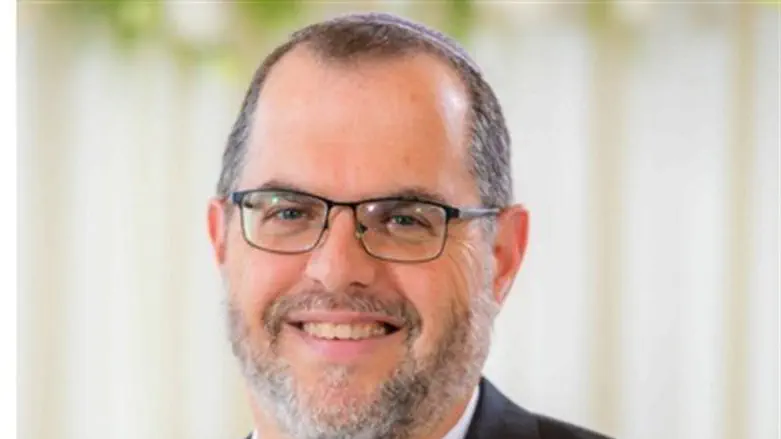
The events of Parashat Netzavim occur on the 7th of Adar, the day of Moshe's death, and is comprised of Moshe Rabbeinu’s last speeches to the people of Israel. From the style of the speeches, and also logically, it would appear that these speeches are a farewell in which Moshe, before his death, wants to strengthen the people in keeping the commandments.
And yet here, during these speeches, after we have seemingly already finished receiving the mitzvot, suddenly Moshe Rabbeinu “remembered” that there are actually two more mitzvot that need to be taught: the mitzvah of הקהל, and the mitzvah of writing a Torah scroll. Why does Moshe Rabbeinu not give over these mitzvot until his last speech?
It can be said that these two mitzvot, Hakhel and the writing of a Torah scroll, are not just two more in the list of mitzvot, but are “summarizing mitzvot”. They sum up the purpose of all of the commandments together.
We can divide the mitzvot of the Torah into sets of 2 categories such as mitzvot between man and G-d and those between man and his fellow man, “auditory” and “intellectual” mitzvot and more. These two mitzvot show us another set of categories of mitzvot in the Torah: mitzvot whose purpose is to correct and perfect the group, and the mitzvot whose purpose is to correct and perfect the individual.
The mitzvah of Hakhel is the most communal mitzvah there is. Every 7 years on Sukkot of the eve of the shemita year, all of Israel - men, women, children and babies - come to the Temple to hear the king read portions of the book of Devarim. It is almost a recreation of the giving of the Torah at Mount Sinai. This mitzvah is an embodiment of the “communal mitzvot” in the Torah, the mitzvot that come to correct society, the nation and the entire world, such as mitzvot that are related to the legal system, the order of kingship and leadership.
On the other end of the spectrum, the mitzvah of writing a Torah scroll is a very personal mitzvah: the commandment that each individual write and own their own Torah scroll so that they can study it and know how to walk in the way of G-d. This mitzvah is an embodiment of the "individual mitzvot" of the Torah, the mitzvot that come to correct and perfect the individual, such as the mitzvot of tefillin, kiddush, sitting in a sukkah and more.
It was important for Moshe Rabbeinu to emphasize in his last speech that the whole purpose of the Torah is to perfect both the group and the individual. He did not want the people of Israel to look at these two mitzvot as just two more in the general list of commandments but as the “unifying goal” of all of the mitzvot.
It is also not for nothing that the mitzvah of Hakhel preceded the mitzvah of writing a Torah scroll in Moshe Rabbeinu's words. This is the correct order of priorities.
An individual does go through life on his own but gets his power from the community. Every Jew, in order to know their own role and mission in life, must first intrinsically understand the mission of the entire nation of Israel which is to reveal the name of G-d to the world. If he understands this, he will be able to know how he, with his abilities and personal skills, can take part in the great mission of the entire nation.
We are approaching Rosh Hashanah in a challenging era for the whole world and the State of Israel in particular, and we must remember our responsibility to pray for the correction and perfection of the community as a whole as well as the correction and perfection of each individual.
Rabbi Shlomo Sobol is the head of the Barkai Rabbinical Organization and the rabbi of the Shaarei Yonah Menachem congregation in Modi'in.